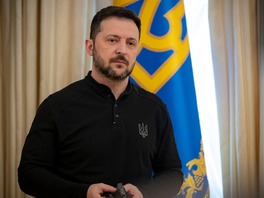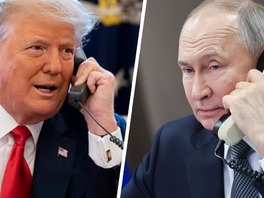The upcoming months may prove important for Ukraine’s foreign policy and future developments in some of its key directions.
With this, the launch of the Crimean Platform and the visit of President Zelensky to the US will mark the country’s 30th anniversary. In September, parliamentary elections will take place in Germany and Russia, with both potentially having a profound impact on Ukraine’s security policy.
The Nord Stream-2 pipeline – another development critical for Ukraine – is expected to launch soon. In a few years, the pipeline may shape a different landscape for Ukraine’s energy security, diminishing its role as a transit country.
These developments, as well as a series of other factors on the global level, indicate another moment of turbulence for Ukrainian foreign policy. Recent several months have brought new features into international politics. US-China rivalry has gone deeper, and the US-European strategic alliance has been somewhat restored. US-Russian dialogue is part of these transformations as well. For mid and small states in an unstable environment, they can be challenging in a short-term perspective.
The Crimean Platform
Ukraine has kicked off the Crimean Platform project, aimed at drawing international attention back to Crimea.
The initiative was planned in 2020 and is seen to be the key instrument of the Crimean policy for President Zelensky. For several years, the Ukrainian government lacked a clear vision of how to deal with the vast consequences of the annexation of Crimea by Russia. Humanitarian and legal issues have been addressed, although in a quite limited way. Governmental and non-governmental institutions have also proposed a series of Crimean strategies, yet they were hardly realistic and lacked machinery behind intentions.
It is quite possible that the Crimean Platform will meet similar results. So far, it is a multilayer structure, bringing together political leaders, officials, and experts, aimed at keeping Crimea a focus of international attention. It strives to protect the rights of Ukrainians on the peninsula, and, after all, put an end to the occupation.
The main attention is on the opening summit of the platform, set to take place on August 23rd. So far, 40+ countries have expressed their intention to participate. However, the level of representation is thus far unclear. In many ways, the summit and its declaration will be a symbolic event, demonstrating political support for Ukraine over Crimea and Russia’s opportunities to make that support weaker over time.
Along with preparations for the summit, an expert track of the Crimean Platform has been launched. It brings together numerous (180+ so far) experts on international security, regional issues, legal and humanitarian problems to provide analytical support to decision-makers. Several tracks are addressing various aspects of the occupation and its consequences.
The Platform is planned to be a continuously working initiative. If that’s the case, the Ukrainian diplomatic service will have lots of work to do in the upcoming months.
Meeting President Biden
President Zelensky’s visit to Washington, D.C. is expected to be a tough one. Many observers in Kyiv believed the Biden administration would take a much stronger pro-Ukrainian stance – and turned out to be mistaken. Secretary Blinken’s visit to Ukraine in May indicated that American support will remain at roughly the same level as before, conditioned on the success of reforms. This, in turn, means that Ukraine cannot count on US geopolitical charity.
The subsequent meeting of President Biden and President Putin in June has sent additional signals for the Ukrainian capital. Russia has been back at global contention, and there is an agenda for a limited US-Russia cooperation. It appears there is growing pressure on American foreign policy because of the rise of China and regional crises. On the one hand, it makes Ukrainian problems less relevant. On the other hand, Russia is becoming increasingly needed as a partner.
The meeting is scheduled for August 30, days after the launch of the Crimean Platform and Ukraine’s Independence anniversary, coupled to take place on the 23rd and the 24th of August. The US will be represented by Pete Buttigieg, the Secretary of Transportation and a former presidential candidate – another reason for disappointment in Kyiv for those who were seriously expecting President Biden to visit Ukraine. Ukrainian-American relations are firmly fixed, with no breakthroughs at sight. Ukraine’s role has been quite modest for the White House even when Biden was a vice-president. Along with numerous conversations from the Ukrainian side about a strategic partnership, the bilateral agenda is very limited. There has been no US Ambassador to Ukraine for over two years.
This time, negotiations will also traditionally be focused on the Russian aggression, the implications of Nord Stream-2 and reforms in Ukraine. Several agreements are expected to be signed on the cooperation in the R&D and space industry. The topics under wide speculation in Ukraine, such as applying for the MNNA status or stressing the importance of getting a MAP, are out of reach. Another major issue is receiving an assurance from the White House on Ukraine’s energy security after the launch of the Nord Stream-2 project, which is also problematic. US-German compromise on the Nord Stream-2 has also been perceived as a blow to Ukraine’s national interests by many, but a policy of blaming will hardly be effective in this case.
Bilateral relations are stable and will continue to be centered on limited assistance to Ukraine, diplomatic and political support, and reforms.
Elections in Russia and Germany
Russia and Germany have been key factors defining European security and Ukraine’s strategic environment in recent years. By annexing Crimea, Russia has become a vital threat to Ukraine and a challenge for the EU. Germany took the leading role in responding to Russian revisionism, including a consolidating role in the anti-Russian sanctions’ regime.
In Russia, the elections will take place on September 17-19. The Duma is not the most powerful institution in Moscow; however, these elections are important given a prolonged period of political transition. It is expected that United Russia (Yedinaya Rossiya) will not repeat the success of 2016 when the party won a constitutional majority in the parliament. Its current level of support is about 30%. Together with three other parliamentary parties – the Communist Party, the Liberal-Democratic Party, and Just Russia – the party in power will search for a new balance in the Duma.
Election results will have an impact on internal political developments in Russia. Different groups of influence are raising bets in an attempt to get an upper hand in what seems to be a struggle for Putin’s succession. Ukraine is also a part of this equation, since there are competing views inside the Russian elite on the Kremlin’s Ukrainian policy. Elections in Russia may also serve as a turning point in events in the Donbas – although chances for significant changes of the status quo are very slim.
In Germany, elections are to be held on September 26. For Ukraine, they are important for at least two reasons. First, Angela Merkel will leave the office. Her role in the N4 format, as well as in the anti-Russian sanctions regime and, overall, in shaping the EU’s response to Russian policy, has been profound. She has long-lasting personal contacts with Vladimir Putin, which has contributed to the stabilization in Europe after Russia’s aggressive steps in 2014. With Merkel gone, Ukraine will face more difficult times in dealing with the German government on security issues.
Another reason as to why elections in Germany are important is a new coalition. The way the power will be distributed among Christian Democrats, Social Democrats and Greens will shape the future coalition and the government, in turn defining agreements on the issues sensitive for Ukraine, such as energy and foreign policy.
So far, it looks like a new German government will continue today’s general policy on Ukraine, although nuances may matter. In particular, the cornerstones are likely to include the support for Ukraine, the continuation of sanctions against Russia – but with a dialogue open, and the participation in N4 efforts. At the same time, there are differences in approaches of the key election contenders to Nord Stream-2, different perspectives on providing a MAP for Ukraine or even a NATO membership. With this, a coalition in Germany after the elections will be important for Ukraine for foreign policy and security reasons.
Conclusion
Ukraine has been experiencing a challenging year thus far. Shifts at the global level are disturbing and generate risks; they also limit options and pose dilemmas for Ukrainian foreign and security policy.
The US move to counter China’s rise may potentially be troublesome for Ukraine, with China being its largest trading partner. Moreover, it can mean more opportunities and maneuvers for Russia. At the moment, the dialogue in the Washington-Berlin-Moscow triangle is not very promising for Ukraine.
The challenges ahead will mostly concern retaining the international support Ukraine used to enjoy. The launch of the Nord Stream-2 pipeline, Zelensky’s visit to the US, and the results of parliamentary elections in Russia and Germany are all events to keep an eye on.





